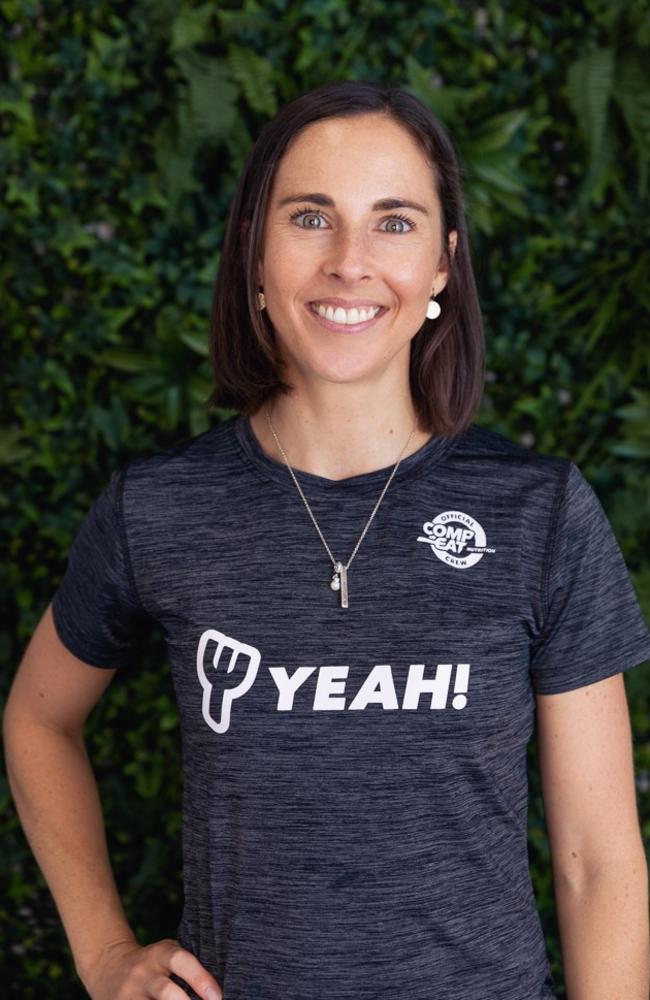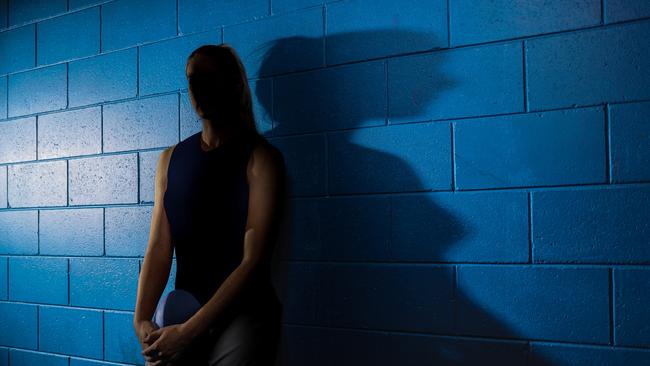A dietician linked with some of the nation’s biggest sporting teams has revealed the shocking ultimatum given to her clients by coaches: lose weight or don’t get selected. Listen to the full podcast episode here.
In New Corp’s full podcast chat with Alicia Edge, co-founder of Compeat Performance, Edge said weight ultimatums had become a reality for many of her athletes – despite shock figures of disordered eating and exercise obsession among athletes.
Edge is the Performance Nutrition Lead for Football Australia, and has spent time with the NSW Waratahs and AIS working with the Brumbies, Australian Paratriathlon, Joeys Football and the Australian Volleyball Squad.
“I’ve had multiple conversations just in the past few weeks where ultimatums have been given, where you need to be this weight or lose this weight if you’re going to be selected or have this contract next year,” Edge said.
“That to me is mind-blowing — that it’s even legal — but we don’t have the data to prove that weight is the missing piece to their performance.
“That is the real big issue in sport.”
You can listen the full conversation with Edge on Soundcloud here.

The revelation comes as data across the world has shown disordered eating and exercise obsession are occurring more in athletes than in everyday people.
A collegiate study by University of Temple Doctoral Candidate Ksenia Power examined the symptoms of disordered eating among National Collegiate Athletic Association (NCAA) athletes.
The 2020 study found up to 84 per cent of collegiate athletes reported engaging in maladaptive eating and weight control behaviours, such as binge eating, excessive exercise, strict dieting, fasting, self-induced vomiting and the use of weight loss supplements.
The Australian Institute of Sport and National Eating Disorders Collaboration found there was a higher prevalence of disordered eating and eating disorders in athletes compared with non-athletes.
Their 2020 position statement stated between 0-19 per cent of males and 6-45 per cent of female athletes have disordered eating behaviours.
And it’s important to note this issue is also affecting men, despite media coverage and social stereotypes that this is a female only issue.
A 2020 study conducted by experts from the University Hospital of Psychiatry Zurich, Switzerland, found in adult male elite athletes up to 32.5 per cent had an eating disorder, a higher rate than in the general population.

In our full podcast episode, she revealed why athletes are so susceptible to these illnesses and why the disorders can’t be detected by weight or looks alone.
“We believe we need to be a certain sickness and a certain look to gain help … or someone has to look a certain weight to be taken seriously,” Edge said.
“I’ve had so many stories from athletes who have suffered from an ED, but had their problems pushed away because they don’t look sick.
“There’s been instances where it’s been said it’s a good thing (to have an eating disorder).”


Add your comment to this story
To join the conversation, please log in. Don't have an account? Register
Join the conversation, you are commenting as Logout
Sharks unveil huge new stadium, $500m mega development
Southport Sharks has unveiled plans for a near-21,000-seat stadium and three residential towers in a massive redevelopment that could reshape the Gold Coast's sporting landscape.
Revealed: All Coast’s options for solving gridlock nightmare
The Gold Coast's population will surge by 350,000 in two decades, but the city's transport blueprint remains in limbo after light rail's dramatic cancellation. FIND OUT MORE